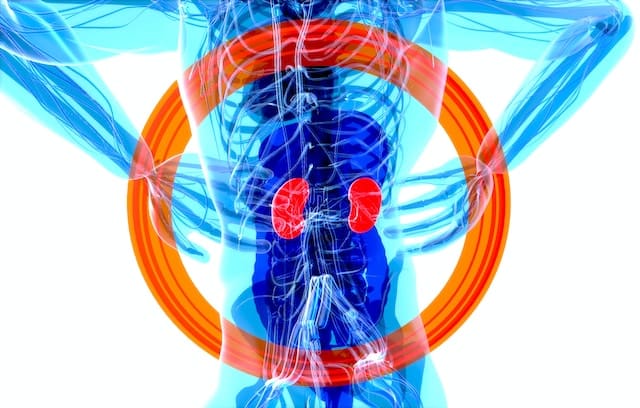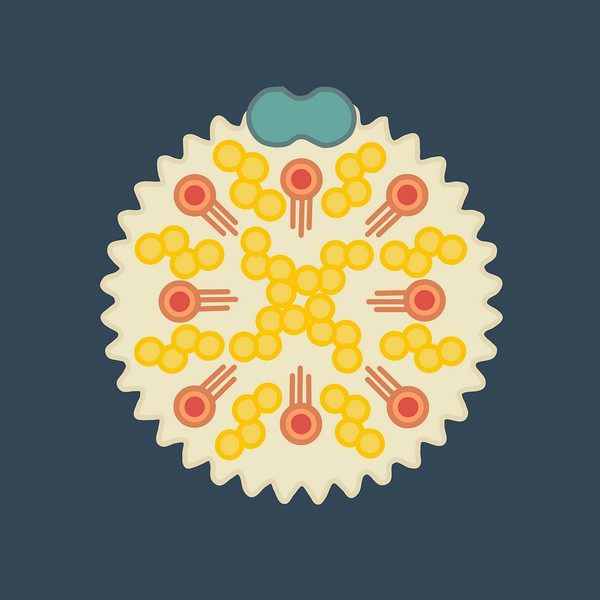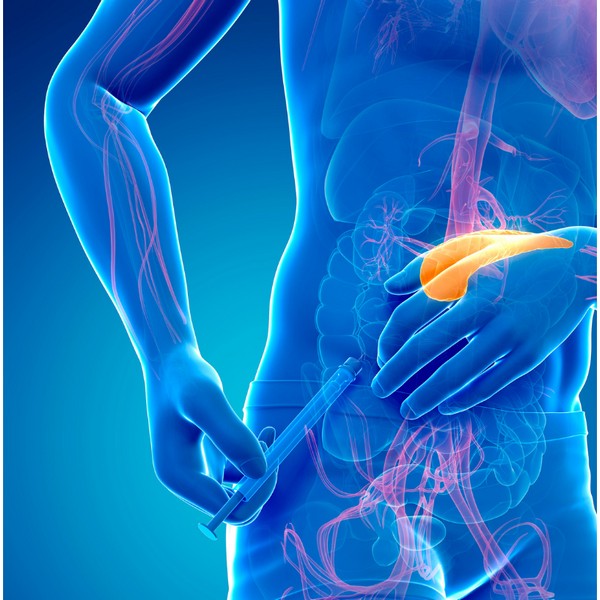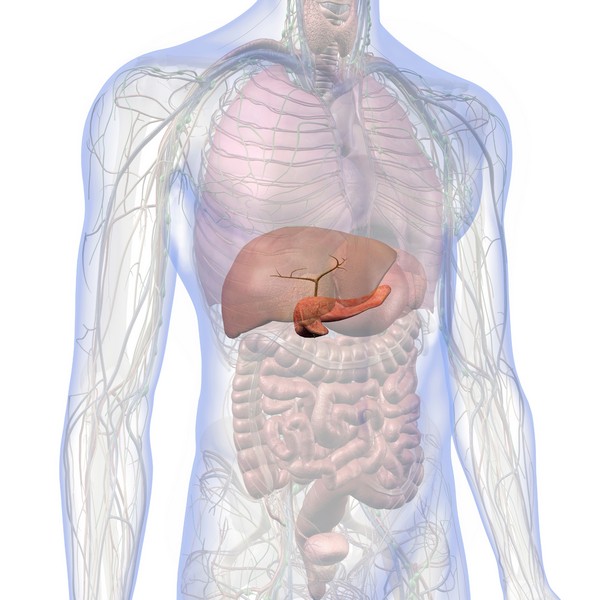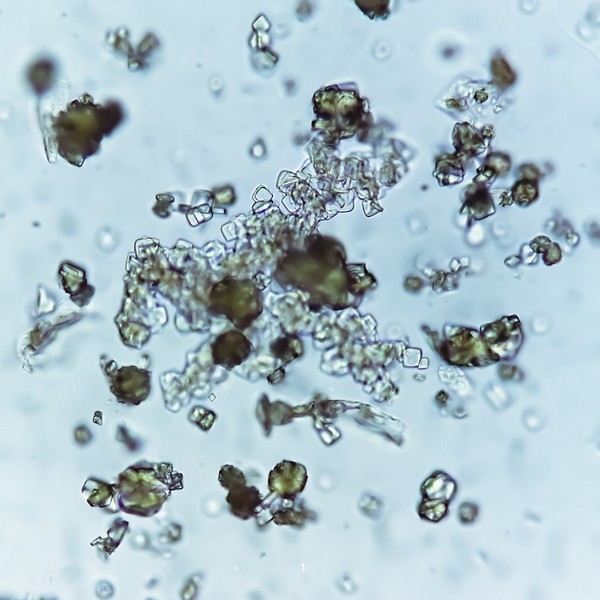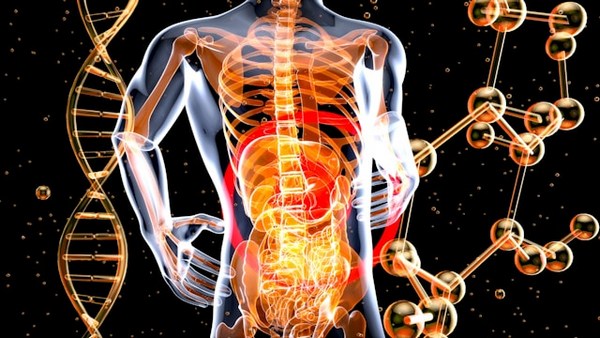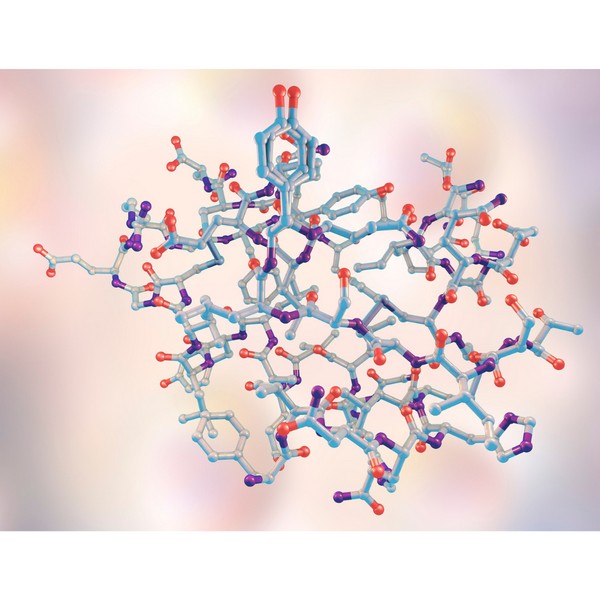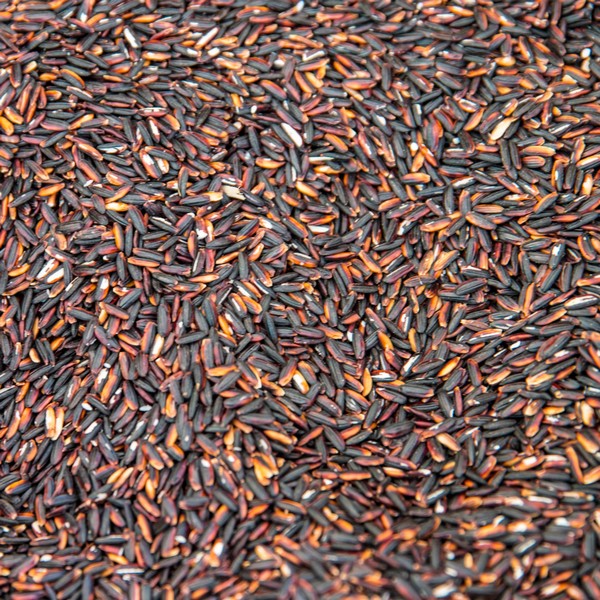Table of Contents
Every time you eat it, it’s plotting something sinister. Sugar isn’t as innocent as it seems — in fact, it could be one of the most dangerous substances on the planet.
Additionally, for the record, blood glucose management is not just a concept for diabetics.
Furthermore, with diabetes ranking consistently worldwide among the most common chronic afflictions, your probability of developing it is likely to be higher than you would think.
1. Intermittent fasting

Intermittent fasting has gained attention as an effective method to improve insulin sensitivity and blood sugar regulation. A study by Sutton et al. (2018) found that early time-restricted feeding improved insulin sensitivity, β cell function, and blood pressure in individuals with prediabetes.
Fast Facts on Diabetes
Total: 37.3 million people have diabetes (11.3% of the US population)
Diagnosed: 28.7 million people, including 28.5 million adults
Undiagnosed: 8.5 million people (23.0% of adults are undiagnosed)Source: Centers for Disease Control and Prevention. National Diabetes Statistics Report website. https://www.cdc.gov/diabetes/data/statistics-report/index.html. Accessed June 2023
2. Exercise

Regular physical activity is known to improve insulin sensitivity and help regulate blood glucose levels. A study by Bird and Hawley (2017) shows that both aerobic and resistance exercise can improve insulin sensitivity in individuals with type 2 diabetes.
3. Dietary fiber
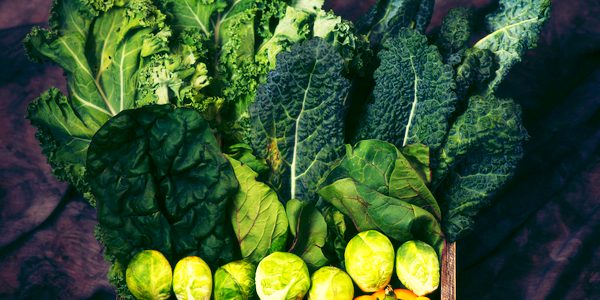
Consuming foods high in dietary fiber has been shown to improve insulin sensitivity and blood sugar control. A study by Reynolds et al. (2019) found that consuming at least 25g of fiber per day for women and 38g for men was associated with better glycemic control and reduced risk of type 2 diabetes.
You may benefit from trying foods made from konjac glucomannan fiber such as Miracle Noodles. If enough is not obtained from food, supplemental forms like Nutricost Organic Acacia Fiber and Bulletproof Innerfuel Prebiotics can be added in.
4. Sleep

Adequate sleep is essential for maintaining proper insulin sensitivity and blood sugar regulation. A study by Buxton et al. (2010) demonstrated that sleep restriction and circadian misalignment can lead to decreased insulin sensitivity and increased risk of type 2 diabetes.
5. Weight loss

Losing weight, particularly through reducing visceral fat, can significantly improve insulin sensitivity and blood glucose regulation. A study by McLaughlin et al. (2010) found that even modest weight loss could lead to significant improvements in insulin sensitivity in overweight individuals.
6. Supplementation
Bioclinic Naturals
PGX
- Controls Blood Sugar: PGX helps to balance and maintain blood sugar levels within the normal range.
- Reduces Glycemic Index: It can lower the glycemic index of meals by up to 60%, moderating blood sugar spikes after eating.
- Promotes Fullness: By expanding in the stomach, PGX promotes a lasting feeling of fullness, which can reduce overall food intake.
- Supports Healthy Weight Loss: Assists in weight management, which is often beneficial for maintaining stable blood sugar levels.
- Natural and Stimulant-Free: PGX is a natural option without stimulants, making it a preferable choice for managing diet and blood sugar.
In addition to lifestyle changes, certain supplements can provide a little more support for blood sugar control. Here is a list of some supplements that have been shown to positively impact blood glucose regulation:
| Berberine | Magnesium | Fenugreek |
| Copper Glycinate | Bitter Melon | Chromium |
| Alpha Lipoic Acid | Gymnema Sylvestre | Vanadyl Sulfate |
| Propolis | Ceylon Cinnamon |
Last but certainly not least, the piece de resistance is the masterfully crafted blend of scientifically proven potent probiotics with no competition. The brilliant doctors and scientists at Pendulum Therapeutics, Inc. have outdone themselves yet again.
Metabolic Daily is the culmination of extensive research into the keystone strain Akkermansia muciniphila, in addition to Anaerobutyricum hallii and Clostridium beijerinckii, exclusively available only from Pendulum.
As if that wasn’t enough they included butyric acid producing Clostridium butyricum as well as Bifidobacterium infantis. If you are familiar with these names you know this is the dream team of the probiotic world.


In conclusion, recent research supports the use of intermittent fasting, regular exercise, a high-fiber diet, adequate sleep, and weight loss to improve insulin sensitivity and blood glucose regulation. By incorporating these lifestyle changes, individuals can significantly reduce their risk of developing type 2 diabetes and other metabolic disorders. It is essential to consult with a healthcare professional before implementing any significant changes to your routine, particularly if you have pre-existing medical conditions or are taking medications.
Biotiquest
Sugar Shift
- Transforms excess sugars into mannitol, which the body naturally eliminates, reducing inflammation.
- It enhances gut mannitol production, preventing harmful protein buildup.
- Increases butyrate production, improving gut and brain health.
Research
Al-Asmakh, M., Anuar, F., Zadjali, F., Rafter, J. and Pettersson, S., 2012. Gut microbial communities modulating brain development and function. Gut Microbes, [online] 3(4), pp.366–373.
https://doi.org/10.4161/gmic.21287.
Sutton, E. F., Beyl, R., Early, K. S., Cefalu, W. T., Ravussin, E., & Peterson, C. M. (2018). Early Time-Restricted Feeding Improves Insulin Sensitivity, Blood Pressure, and Oxidative Stress Even without Weight Loss in Men with Prediabetes. Cell Metabolism, 27(6), 1212-1221.e3.
https://pubmed.ncbi.nlm.nih.gov/29754952/
Bird, S.R., Hawley, J.A., 2017. Update on the effects of physical activity on insulin sensitivity in humans. BMJ Open Sport & Exercise Medicine 2, e000143..
https://doi.org/10.1136/bmjsem-2016-000143
Reynolds, A., Mann, J., Cummings, J., Winter, N., Mete, E., Te Morenga, L., 2019. Carbohydrate quality and human health: a series of systematic reviews and meta-analyses. The Lancet 393, 434–445..
https://doi.org/10.1016/s0140-6736(18)31809-9
Buxton, O. M., Pavlova, M., Reid, E. W., Wang, W., Simonson, D. C., & Adler, G. K. (2010). Sleep restriction for 1 week reduces insulin sensitivity in healthy men. Diabetes, 59(9), 2126-2133
https://doi.org/10.2337/db09-0699
McLaughlin, T., Lamendola, C., Liu, A., & Abbasi, F. (2010). Preferential fat deposition in subcutaneous versus visceral depots is associated with insulin sensitivity. Journal of Clinical Endocrinology & Metabolism, 95(11), E45-E48
doi: 10.1210/jc.2011-0615
Suksomboon, N., Poolsup, N., & Yuwanakorn, A. (2014). Systematic review and meta-analysis of the efficacy and safety of chromium supplementation in diabetes. Journal of Clinical Pharmacy and Therapeutics, 39(3), 292-306
doi: 10.1111/jcpt.12147
Zhang, Y., Li, X., Zou, D., Liu, W., Yang, J., Zhu, N., … & Ning, G. (2008). Treatment of type 2 diabetes and dyslipidemia with the natural plant alkaloid berberine. Journal of Clinical Endocrinology & Metabolism, 93(7), 2559-2565
Veronese, N., Watutantrige-Fernando, S., Luchini, C., Solmi, M., Sartore, G., Sergi, G., … & Correll, C. U. (2016). Effect of magnesium supplementation on glucose metabolism in people with or at risk of diabetes: a systematic review and meta-analysis of double-blind randomized controlled trials. European Journal of Clinical Nutrition, 70(12), 1354-1359
Akilen, R., Tsiami, A., Devendra, D., & Robinson, N. (2012). Cinnamon in glycaemic control: Systematic review and meta-analysis. Clinical Nutrition, 31(5), 609-615Padmaja Chaturvedi.Antidiabetic Potentials of Momordica charantia: Multiple Mechanisms Behind the Effects.
Journal of Medicinal Food.Feb 2012.101-107.
http://doi.org/10.1089/jmf.2010.0258
Fraser, D.A., Hessvik, N.P., Nikolić, N., Aas, V., Hanssen, K.F., Bøhn, S.K., Thoresen, G.H., Rustan, A.C., 2012. Benfotiamine increases glucose oxidation and downregulates NADPH oxidase 4 expression in cultured human myotubes exposed to both normal and high glucose concentrations. Genes & Nutrition 7, 459–469.. https://doi.org/10.1007/s12263-011-0252-8
Cohen, N., Halberstam, M., Shlimovich, P., Chang, C.J., Shamoon, H., Rossetti, L., 1995. Oral vanadyl sulfate improves hepatic and peripheral insulin sensitivity in patients with non-insulin-dependent diabetes mellitus.. Journal of Clinical Investigation 95, 2501–2509..
https://doi.org/10.1172/jci117951
Braakhuis, A., 2019. Evidence on the Health Benefits of Supplemental Propolis. Nutrients 11, 2705..
https://doi.org/10.3390/nu11112705
Pandey A, Tripathi P, Pandey R, Srivatava R, Goswami S. Alternative therapies useful in the management of diabetes: A systematic review. J Pharm Bioallied Sci. 2011 Oct;3(4):504-12.
https://www.ncbi.nlm.nih.gov/pmc/articles/PMC3249697/
Shah, B. R., Li, B., Wang, L., Liu, S., Li, Y., Wei, X., Weiping, J., & Zhenshun, L. (2015). Health benefits of konjac glucomannan with special focus on diabetes. In Bioactive Carbohydrates and Dietary Fibre (Vol. 5, Issue 2, pp. 179–187). Elsevier BV.
https://doi.org/10.1016/j.bcdf.2015.03.007
Nitesh Sood and others, Effect of glucomannan on plasma lipid and glucose concentrations, body weight, and blood pressure: systematic review and meta-analysis, The American Journal of Clinical Nutrition, Volume 88, Issue 4, October 2008, Pages 1167–1175,
https://doi.org/10.1093/ajcn/88.4.1167
Chukwuma, C.I., Matsabisa, M.G., Erukainure, O.L., Ibeji, C.U. and Islam, M.S., 2019. D-mannitol modulates glucose uptake ex vivo; suppresses intestinal glucose absorption in normal and type 2 diabetic rats. Food bioscience, 29, pp.30-36.
Kim, C.Y., Lee, J.H., Kim, B.H., Yoo, S.K., Seo, E.S., Cho, K.S., Day, D.F. and Kim, D., 2002. Production of mannitol using Leuconostoc mesenteroides NRRL B-1149. Biotechnology and Bioprocess Engineering, 7, pp.234-236.
Soetaert, W., 1990. Production of mannitol with Leuconostoc mesenteroides. Mededelingen van de Faculteit Landbouwwetenschappen, Rijksuniversiteit Gent, 55(4), pp.1549-1552.
How to Lower Triglycerides Fast: Natural Solutions
Key Highlights Triglycerides, a type of fat found in the blood, are essential indicators of metabolic health. Elevated triglyceride levels increase the risk of heart…
7 Remedies for Kidney Stones: A Comprehensive Guide
Key Takeaways Staying well-hydrated and adopting a balanced diet can help prevent kidney stones. Knowing the causes of kidney stones can inform effective prevention strategies….
Allergy-Friendly Pets
Key Highlights Hypoallergenic pets are great for people with pet allergies, as they produce fewer allergens like dander, saliva, and proteins that can trigger symptoms….
Alzheimer’s Disease: Symptoms, Causes, Treatment
Key Takeaways Alzheimer’s disease is a progressive neurodegenerative disorder affecting memory, thinking, and behavior. Oxidative stress, including from excess iron, plays a significant role in…
Iron Overload: Symptoms & Prevention Tips
Key Takeaways: Iron overload happens when the body absorbs excessive iron, which can damage organs. Common symptoms include fatigue, joint pain, and skin changes. Early…
Atherosclerosis Prevention Strategies: Insights from Scientific Research
Key Takeaways Atherosclerosis is the hardening and narrowing of arteries caused by plaque buildup. Chronic inflammation and oxidative stress contribute to the development of plaque….
Vegetable Oil: Health Risks You Might Not Know
Key Takeaways: Omega-6 fats from vegetable oils cause oxidative stress and inflammation. Reducing omega-6 intake and using stable fats can lower health risks. High triglycerides…
Remnant Cholesterol (RC): Its Origins & Impact
Key Takeaways Remnant cholesterol (RC) is the cholesterol content left in the blood after triglycerides are removed from VLDL and IDL particles. RC is a…
Dialysis: Benefits & Challenges
Key Takeaways Dialysis removes waste and excess fluid from the blood when kidneys cannot function. Two main types: hemodialysis (machine-based) and peritoneal dialysis (abdomen-based). Dialysis…
7 Simple Tips for Lowering Blood Pressure Naturally
Maintaining healthy blood pressure levels is essential for overall well-being, as high blood pressure can lead to serious health complications. However, it is possible to…
Supporting Mental Health with Gut Health
Key Takeaways Gut-Brain Connection: Gut health is directly linked to mental wellbeing through the gut-brain axis. Probiotics: Beneficial bacteria that help regulate mood and support…
Insulin Resistance: What It Is & How to Manage It
Key Takeaways Insulin resistance leads to high blood sugar when cells stop responding to insulin. Often connected to obesity, poor diet, and physical inactivity. Symptoms…
Is Eating Sugar Really That Bad For Your Health?
Should You Really Be Concerned? In short, YES! Thank you, that’s all folks, and do have a good evening. Seriously though, extensive research has established…
Non-Alcoholic Fatty Liver Disease (NAFLD)
Key Takeaways NAFLD involves fat buildup in the liver not caused by alcohol. Commonly associated with obesity, insulin resistance, and metabolic syndrome. NAFLD can lead…
Travel Hygiene Tips: Stay Fresh on the Go
Key Highlights Key practices include frequent handwashing, showering, and oral care. Packing a portable hygiene kit can help you stay fresh on the go. Advanced…
High Homocysteine: How to Manage Levels
Key Takeaways: Elevated homocysteine can raise the risk of heart disease and other health problems. Animal-based foods high in B vitamins help reduce homocysteine levels….
Signs of Diabetes: Recognizing the Red Flags
Key Takeaways Increased Thirst and Urination: High blood sugar leads to dehydration, causing excessive thirst and frequent urination. Unexplained Weight Loss: Diabetes can cause the…
Parkinson’s Disease : Symptoms, Causes & Treatment
Key Takeaways Parkinson’s disease is a progressive neurological disorder that affects movement and coordination. Oxidative stress and excess iron are significant factors in the progression…
Alcohol and Its Effects
Key Takeaways Alcohol is metabolized primarily in the liver, producing acetaldehyde, a toxic byproduct. Chronic alcohol consumption leads to liver damage, including fatty liver, hepatitis,…
Uric Acid: Effects & Management
Inflammation: Causes & Effects
Key Takeaways Inflammation is the body’s response to injury or infection, but chronic inflammation can lead to health problems. Iron overload from artificial sources and…
SIBO Bloating: Causes, Diet, & Management Tips
Key Takeaways SIBO disrupts gut bacteria balance, causing bloating, pain, and nutrient absorption issues. Symptoms include bloating, abdominal pain, diarrhea, constipation, weight loss, and fatigue….
Chronic Kidney Disease (CKD): Causes & Treatment
Key Takeaways Ultra-processed foods and high carbohydrate intake worsen inflammation, harming kidney function. Iron overload leads to oxidative stress, which accelerates CKD progression. Copper is…
Diabetes: Everything You Need to Know
Key Takeaways Type 1 and Type 2 diabetes involve insulin regulation issues, with Type 2 being the most common due to insulin resistance. Copper, retinol,…
Postbiotics: What They Are and Why They Are Important
Key Takeaways Postbiotics 101: They’re beneficial by-products from probiotics that consume prebiotics Boosts Immunity: Postbiotics sharpen your immune system, helping fight off pathogens and reducing…
Triglycerides: Levels & Range Explained
Key Highlights Triglycerides are the most common form of fat in the body play a role in energy storage High levels of triglycerides can increase…
Metabolic Syndrome: Managing This Health Risk
Key Takeaways Metabolic syndrome is a cluster of conditions increasing the risk of heart disease, stroke, and diabetes. Symptoms include high blood pressure, high blood…
Coping with Pet Allergies: Tips & Advice
Key Highlights Pet allergies often cause sneezing, coughing, itchy eyes, and skin rash. Pet allergens are in the saliva, urine, and dander of furry animals….
Boost Insulin Sensitivity Naturally
Key Takeaways Improving insulin sensitivity helps control blood sugar and reduces the risk of metabolic disorders. Regular physical activity enhances how cells respond to insulin….
Metabolic Health: What It Means and How to Improve It
Key Takeaways Metabolic health reflects how well your body processes energy and maintains stable blood sugar, cholesterol, and blood pressure. Key indicators of metabolic health…
L-Glutamine and Gut Health: Benefits and Side Effects
Key Takeaways L-Glutamine is essential for gut health. Benefits include improved digestion and reduced inflammation. Potential side effects are rare but can occur in high…
Proteolytic Enzymes and Heart Health: What the Research Shows
Your heart works tirelessly to pump blood throughout your body, delivering essential nutrients and oxygen to your cells. However, factors like poor diet, stress, and…
Histamine: What You Should Know
Key Takeaways Histamine’s Role: Vital in immune responses, digestion, and as a neurotransmitter in the central nervous system. Histamine Production: Produced in mast cells and…
Quit Sugar for 14 Days: What Happens to Your Body?
Key Takeaways: Immediate Health Benefits of Reducing Sugar: In just two weeks, enjoy enhanced energy levels, weight loss, a reduced risk of chronic diseases, and…



